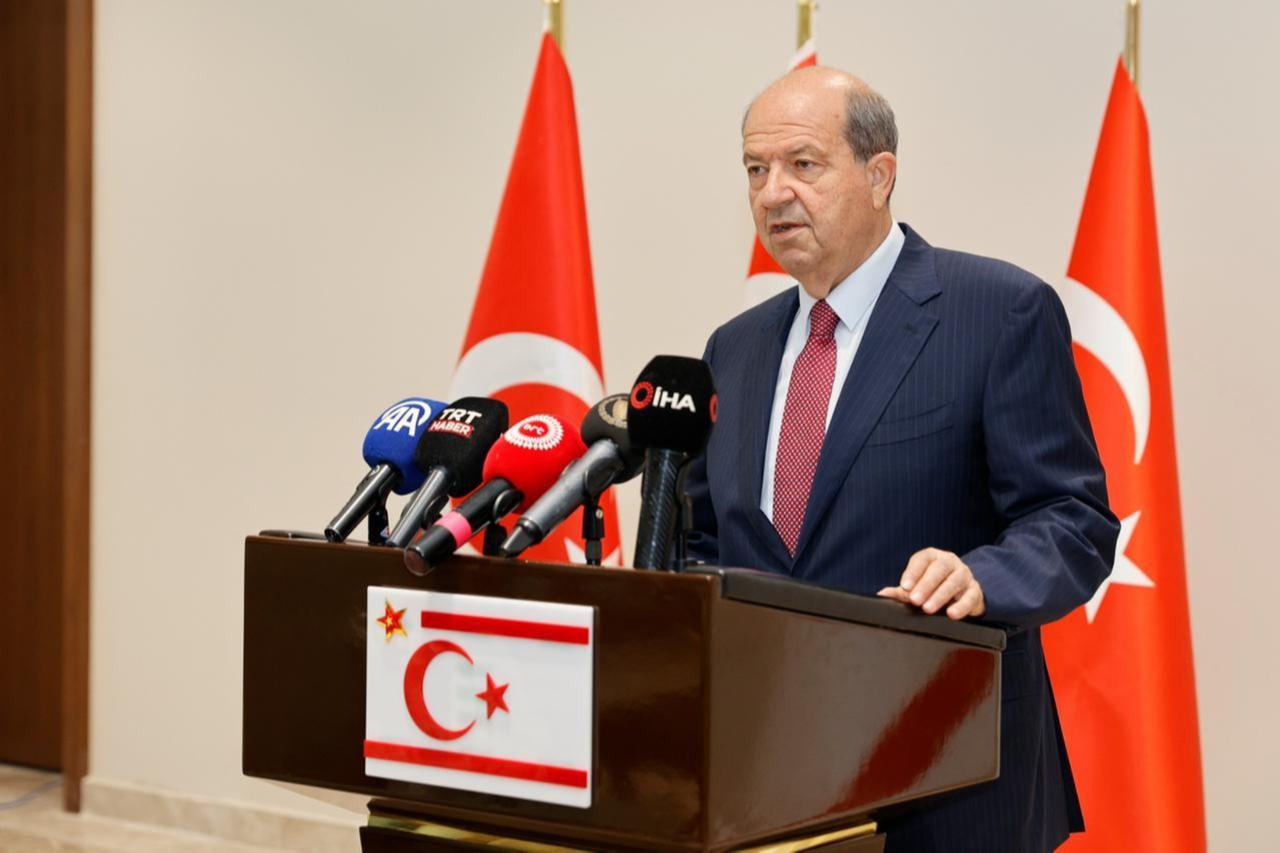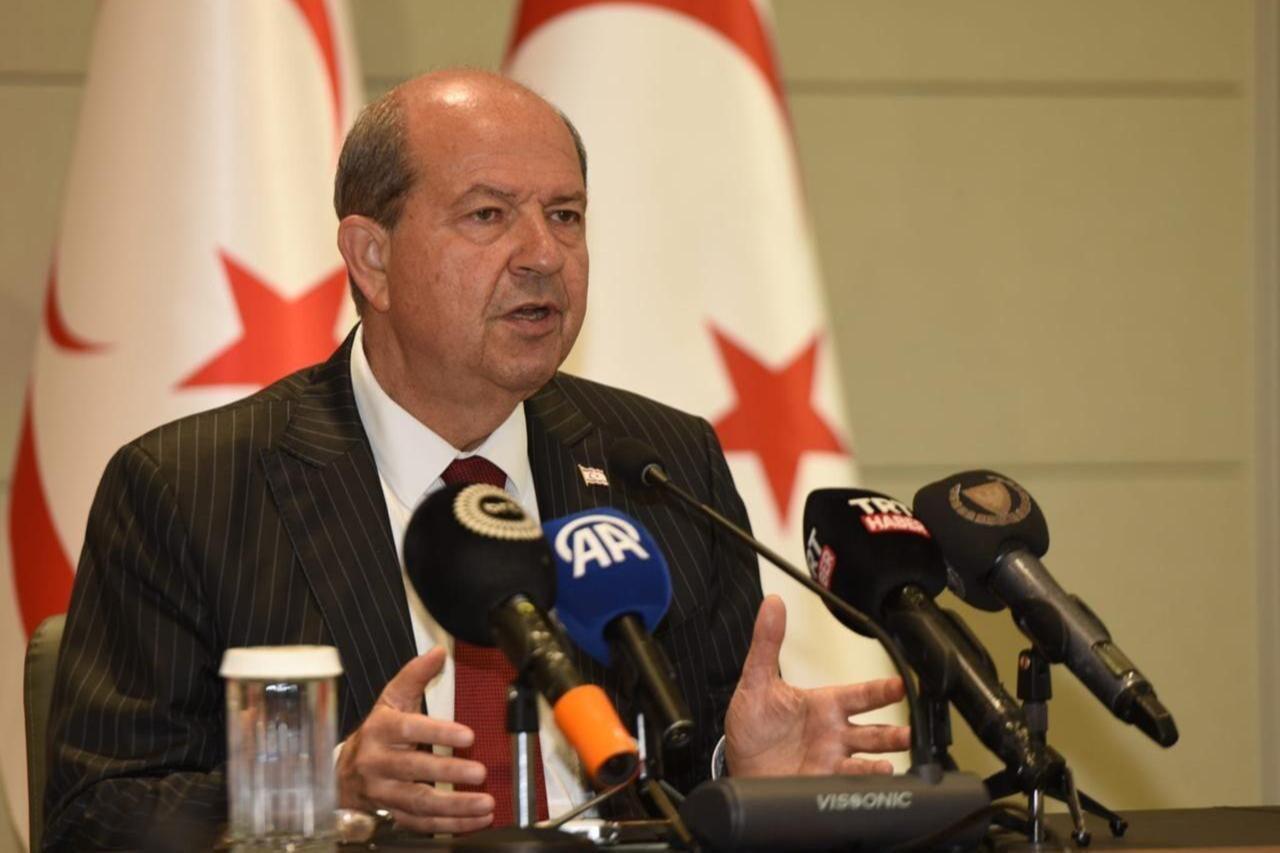
The president of the Turkish Republic of Northern Cyprus accused Greek Cypriot authorities of deliberately prolonging wait times at crossing points to use citizen suffering as leverage in political negotiations.
Ersin Tatar said on Friday that Greek Cypriot officials are "openly extending our people's waiting at crossing points, tormenting them, and continuing to use this situation as political gain and blackmail material."

The statement came after particularly long delays during a recent holiday period, when citizens seeking to cross to the southern part of the divided island faced extended waits. Tatar said such difficulties, already routine, become especially burdensome on holidays.
According to the Turkish Cypriot Police General Directorate, Greek Cypriot authorities deliberately created problems by reducing staff and slowing down processing procedures while operating on a single line, specifically targeting people wanting to use border crossings.
Tatar criticized political opponents who blame his administration for the delays, calling such accusations populist and unfounded. He said normalizing Greek Cypriot inflexibility serves the opposing leadership's interests.
The nine existing border crossings handle approximately 8.5 million immigration procedures annually, with nearly equal numbers of Turkish Cypriots and Greek Cypriots using the facilities. Vehicle crossings are concentrated at the Metehan border gate, which handles 65% of such traffic.
Tatar noted that the international community supports the crossings and is disturbed by Greek Cypriot resistance to opening new border gates.
The current crossing system began with Turkish Cypriot founding president Rauf Raif Denktas's decision to open border gates on April 23, 2003, which Tatar called "perhaps the most important step taken in history for this island."
Tatar said his administration proposed opening a new border gate at Haspolat, which received support from the international community, including the UN and EU. Greek Cypriot leader initially delayed but acknowledged on October 15, 2024, that the issue required serious attention.
However, when leaders met in the buffer zone, the Greek Cypriot side presented what Tatar called "outdated, known maximalist conditions." These included demands for a transit corridor from the buffer zone through Turkish Cypriot territory to connect Kiracıkoy to southern Nicosia, and transit access to connect the Erenkoy coastal area.
"Erenkoy is the symbol of our glorious resistance," Tatar said. "We do not permit Greek Cypriot elements to enter even a centimeter of Erenkoy."
The issue was raised at summits in Geneva in March 2025 and New York in July, but the Greek Cypriot leader maintained an uncompromising position, according to Tatar.
He concluded that Greek Cypriot administration continues using citizen waiting times and suffering as "political gain and blackmail material," with this policy being the sole reason new crossings have not opened.